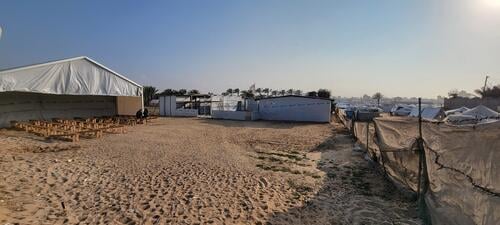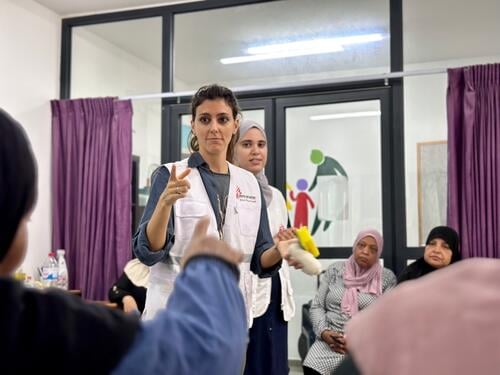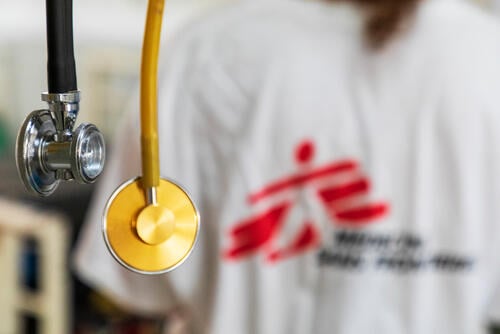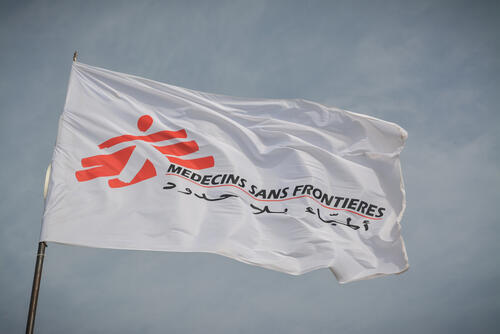- As Rafah offensive intensifies, Médecins Sans Frontières (MSF) calls for an immediate and sustained ceasefire to stop further death and destruction.
- Closure of the Rafah border crossing will have a devastating impact on the humanitarian response for people trapped amidst the fighting.
- MSF calls for the immediate reopening of the Rafah border crossing and for lifesaving assistance to flow into Gaza.
Jerusalem – Israeli forces have begun their offensive on Rafah and have seized control of the border, effectively cutting off lifesaving aid deliveries into Gaza, Palestine.
As thousands of Palestinians are forced to flee eastern Rafah following Israel's recent evacuation orders, MSF calls for protection of civilians and the reopening of the Rafah border crossing.
The closure of this key entry point into Gaza is jeopardising the humanitarian response, leaving stocks including fuel, food, medicines, and water dangerously low, and people trapped amid renewed fighting.
“Rafah crossing, a vital humanitarian access point, has been closed completely until further notice. This will have a devastating impact, as assistance coming through this crossing is a lifeline for the whole Gaza Strip,” says Aurelie Godard, Medical Team Leader in Gaza.
They are at risk of falling further into the depths of a massive humanitarian disaster that has reached nightmare levels.Aurelie Godard, MSF medical team Leader in Gaza
“After seven months of war, which has forced 1.7 million people to flee their homes, the decision to close this crossing further exacerbates the already dire living conditions for people trapped in Gaza,” says Godard.
On 6 May, Israeli forces ordered 100,000 people east of Rafah to evacuate to Al Mawasi, a zone between the west of Rafah and Khan Younis, where shelters and resources are also extremely scarce. Rafah was previously designated by the Israeli forces as a safe zone for civilians.
“These people are again forcibly displaced, moving from makeshift tents to another place without adequate shelter, food, water and medical care,” says Godard. “They are at risk of falling further into the depths of a massive humanitarian disaster that has reached nightmare levels.”
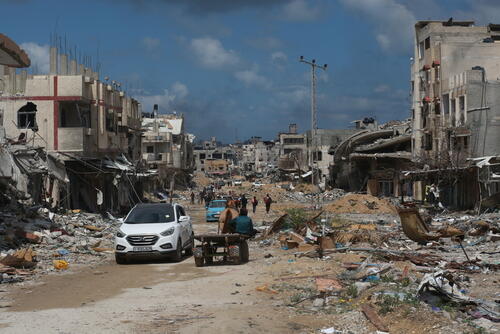
The offensive and the evacuation order further reduce access to healthcare in an already decimated health system, leaving people almost no options for even basic medical care.
Earlier this week, medical staff and patients had to be evacuated from Al-Najjar Hospital, while the European Gaza Hospital (EGH) is no longer accessible. Though we are still running activities at Rafah Indonesian Field Hospital at this stage, where we supported the provision of post-operative care, our teams have begun to discharge patients who met the necessary criteria. We are also suspending our activities at Al-Shaboura Clinic until further notice.
“Having to suspend activities of a health post where our teams carried out 8,269 consultations in April alone, or for instance did 344 dressings last week, is catastrophic,” says Paulo Milanesio, MSF emergency coordinator in Rafah.
Where are pregnant women, children, people with chronic diseases going to seek care and continue treatment in a decimated place like Gaza?Paulo Milanesio, MSF emergency coordinator in Rafah
“Where are pregnant women, children, people with chronic diseases going to seek care and continue treatment in a decimated place like Gaza? Not forgetting the impact on mental health; before the closure we offered over 130 individual mental health consultations a week, and this figure has only increased over the past few weeks,” says Milanesio.
MSF is also handing over its activities at Emirati Hospital to the Ministry of Health (May 8) and relocating staff to Nasser Hospital to continue to support maternity services in a safer area.
“This takes the number of healthcare facilities that we’ve been forced to leave in Gaza to 11, in the space of just seven months, which goes to show the brutality and lawlessness of this war,” says Milanesio.
Since the beginning of this war, MSF has seen a pattern of systematic attacks against medical facilities and civilian infrastructure. The health system in Gaza is being dismantled just as the needs are exploding, with devastating consequences for Palestinian people.
We reiterate our call for an immediate and sustained ceasefire to stop further death and destruction in Gaza and allow for lifesaving assistance to flow into the enclave.



